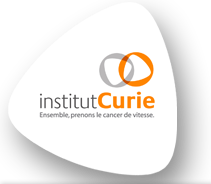Cancer risk management strategies and perceptions of unaffected women five years after predictive genetic testing for BRCA1/2 mutations
Résumé
In a French national cohort of unaffected females carriers/non-carriers of a BRCA1/2 mutation, long-term preventive strategies and breast/ovarian cancer risk perceptions were followed up to 5 years after test result disclosure, using self-administered questionnaires. . Response rate was 74%. Carriers (N=101) were younger (average age ± SD = 37±10) than non-carriers (N=145; 42 ± 12). There were four management strategies that comprised 88% of the decisions made by the unaffected carriers: 50% opted for breast surveillance alone, based on either Magnetic Resonance Imaging (MRI) and other imaging (31%) or mammography alone (19%); 38% opted for either Risk Reducing Salpingo-Oophorectomy (RRSO) and breast surveillance, based on MRI and other imaging (28%) or mammography alone (10%). The other three strategies were: Risk Reducing Mastectomy (RRM) and RRSO (5%), RRM alone (2%), and neither RRM/RRSO nor surveillance (6%). The results obtained for various age-groups are presented here. Non-carriers appeared to opt for screening despite their low cancer risk. Result disclosure increased carriers' short-term high breast/ovarian cancer risk perceptions (p≤0.01) and decreased non-carriers' short- and long-term perceptions (p<0.001). During follow-up, high breast cancer risk perceptions increased with time among those who had no RRM and decreased in the opposite case; high ovarian cancer risk perceptions increased further with time among those who had no RRSO and decreased in the opposite case; RRSO did not affect breast cancer risk perceptions. Informed decision-making involves letting women know whether opting for RRSO and breast MRI surveillance is as effective in terms of survival as RRM and RRSO.
Origine : Fichiers produits par l'(les) auteur(s)
Loading...
